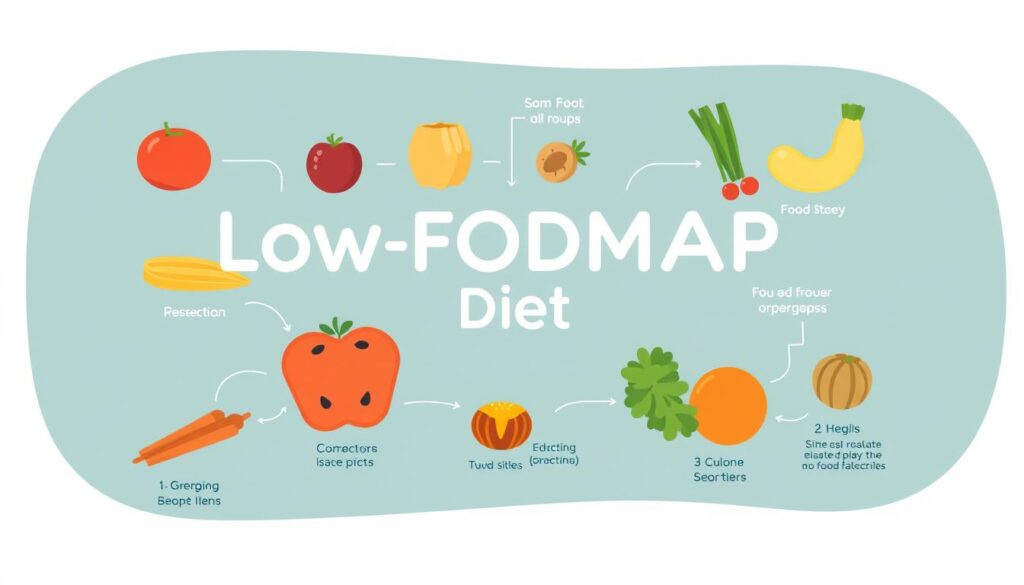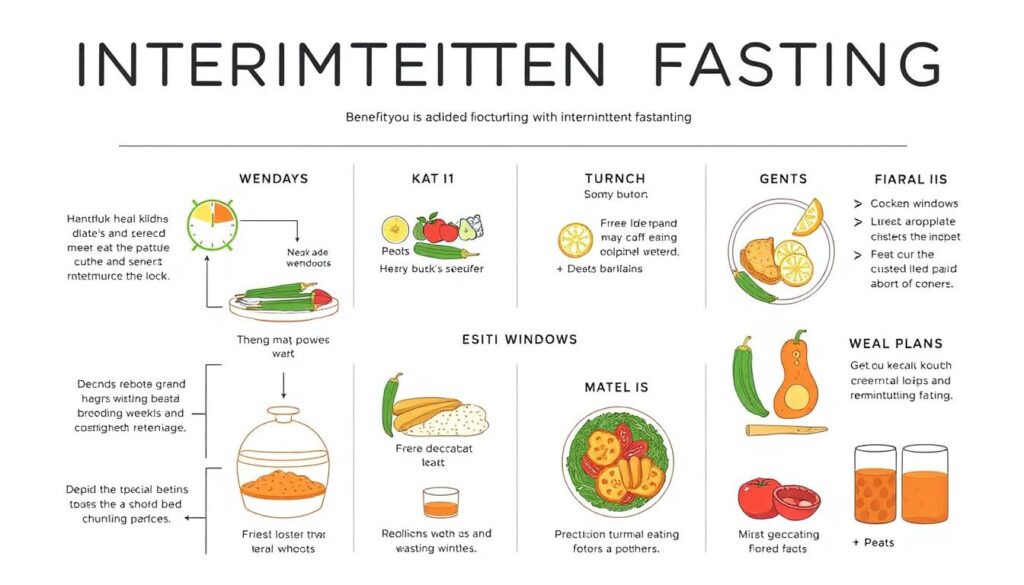Are you wondering which dietary approach will help you achieve your weight loss goals in 2025?
The latest rankings from U.S. News & World Report have once again crowned the Mediterranean diet as the top diet, excelling in numerous categories. With the nutrition and dieting landscape evolving rapidly, personalized approaches to health and weight management are becoming increasingly mainstream.
This comprehensive guide explores the top-rated diets of 2025, evaluated based on scientific evidence, ease of adherence, and effectiveness for various health goals. Understanding the fundamental principles behind successful diets can help you make an informed decision about the best approach for your unique needs.
Key Takeaways
- Discover the top diets of 2025 according to nutrition experts and user satisfaction.
- Learn how these diets are evaluated based on scientific evidence and health outcomes.
- Understand the fundamental principles behind successful diets for various health goals.
- Explore emerging dietary trends gaining traction in the health and wellness community.
- Find out how to choose the best diet that suits your lifestyle and needs.
Understanding Today’s Top-Rated Diets
As we navigate the complex world of diets in 2025, understanding the top-rated options is crucial. This year’s edition evaluates 38 diets across 21 categories, reflecting consumer needs and new categories focused on conditions like gut health and high blood pressure.
How Diets Are Rated in 2025
A significant change in this year’s report is the shift from a numerical ranking to a 5-point rating system. This approach considers a broader range of health and lifestyle factors, providing consumers with a more personalized assessment of various diets.
Key Factors in Diet Effectiveness
Several key factors contribute to a diet’s effectiveness. These include:
- Nutritional balance, emphasizing essential nutrients over calorie restriction.
- Flexibility and adaptability to individual lifestyles.
- The psychological relationship with food, alongside physiological aspects of nutrition.
The importance of these factors is highlighted in the table below, which summarizes the key elements of effective diets.
| Factor | Description | Importance |
|---|---|---|
| Nutritional Balance | Adequate intake of essential nutrients | High |
| Flexibility | Adaptability to individual lifestyles | High |
| Psychological Aspect | Relationship with food | High |

By considering these factors and understanding how diets are rated, individuals can make informed decisions about their eating habits and health goals.
Mediterranean Diet: The Reigning Champion

The Mediterranean diet continues to reign supreme in 2025, topping the charts as the best diet overall. This eating pattern has been recognized for its numerous health benefits, making it a favorite among health enthusiasts and professionals alike.
What Makes the Mediterranean Diet Special
The Mediterranean diet is more than just a diet; it’s a lifestyle that emphasizes consuming fruits, vegetables, whole grains, beans, nuts, and healthy fats, such as those found in olive oil. It also includes moderate amounts of fish and poultry, while limiting sweets, red meats, and processed foods.
Health Benefits Beyond Weight Loss
Beyond weight management, the Mediterranean diet offers numerous health benefits, including reducing the risk of heart disease and alleviating inflammation. Its balanced approach to eating supports overall well-being and can be particularly beneficial for individuals with elevated cardiovascular risk factors.
Who Should Consider the Mediterranean Diet
This diet is suitable for various individuals, including those seeking sustainable weight management, people with prediabetes or type 2 diabetes, and families looking to establish healthy eating habits. It’s also ideal for anyone seeking an evidence-based eating pattern that’s accessible and practical.
DASH Diet: Optimal for Heart Health and Blood Pressure

The DASH diet has emerged as a top contender for heart health and blood pressure management. It is highly rated for its effectiveness in lowering blood pressure and improving overall cardiovascular health.
Core Principles of the DASH Approach
The DASH diet emphasizes a balanced eating plan that is rich in fruits, vegetables, and whole grains. It recommends limiting foods high in salt, sugar, and unhealthy fats. The diet is designed to be easy to follow and is based on foods that are readily available.
By focusing on nutrient-dense foods, the DASH diet helps individuals manage their blood pressure and improve their overall health. The diet’s core principles are aligned with the American Heart Association’s goals for heart-healthy eating.
Scientific Evidence Supporting DASH
Multiple randomized controlled trials have shown that the DASH diet can lower blood pressure within just two weeks. The diet has been found to be particularly effective for individuals with hypertension, though normotensive individuals also experience modest blood pressure reductions.
Research indicates that the DASH diet reduces LDL (“bad”) cholesterol and other cardiovascular risk factors, contributing to its high rating for heart health. Long-term adherence to the DASH eating pattern has been associated with reduced risk of heart failure, stroke, and overall cardiovascular mortality.
Best Diets of 2025: Which One Is Right for You?
As we navigate the world of diets in 2025, finding the right fit is crucial. With various options available, it’s essential to consider what works best for your specific needs.
Matching Diets to Health Goals
When selecting a diet, it’s vital to align it with your health goals. Whether you’re aiming for weight loss or managing a health condition, the right diet can make a significant difference. For instance, the Mediterranean diet is renowned for its overall health benefits, while the DASH diet is particularly effective for heart health and blood pressure management.
Understanding your health objectives helps narrow down the most suitable dietary approach. Consulting with a healthcare provider or a nutritionist can provide personalized guidance, especially for those with existing medical conditions.
Personalization Factors to Consider
Several factors influence the effectiveness of a diet, including genetic predispositions, age, and lifestyle. Emerging research in nutrigenomics highlights the importance of tailoring diets to individual genetic profiles. Additionally, age and life stage play significant roles in nutritional needs, which change over time.
- Lifestyle considerations, such as work schedule and cooking skills, impact the practicality of a diet.
- Food preferences and cultural background should be respected to ensure adherence.
- Existing medical conditions and medications may require consultation with healthcare providers before adopting certain dietary approaches.

Plant-Based Options: Flexitarian, Vegetarian, and Vegan

As we explore the best diets of 2025, plant-based options are gaining popularity for their numerous health benefits. The flexitarian diet, in particular, has been recognized for its balanced approach to eating.
Flexitarian: The Best of Both Worlds
The flexitarian diet focuses on reducing or limiting meat in the diet, opting for a more plant-based approach that prioritizes fruits, vegetables, legumes, and whole grains with meals. This diet allows for occasional consumption of lean meat, fish, or poultry, making it a great option for those who want to adopt a more plant-based lifestyle without completely eliminating meat.
Vegetarian and Vegan Approaches
Vegetarian and vegan diets are other popular plant-based options. Vegetarian diets exclude meat, fish, and poultry, while vegan diets take it a step further by excluding all animal products. Both diets can provide numerous health benefits when planned properly.
Ensuring Proper Nutrition on Plant-Based Diets
To ensure proper nutrition on plant-based diets, it’s essential to pay attention to certain nutrients. Key considerations include:
- Protein adequacy through legumes, soy products, seitan, nuts, seeds, and whole grains
- Vitamin B12 supplementation for strict vegans
- Optimizing iron absorption with vitamin C-rich foods
- Meeting calcium needs through fortified plant milks and calcium-rich vegetables
- Strategic consumption of omega-3 fatty acids from ALA-rich foods or algae-based supplements
By being mindful of these nutritional considerations, individuals can enjoy the benefits of plant-based diets while maintaining overall health and well-being.
Specialized Diets for Specific Health Conditions
Certain health conditions require specialized diets to manage symptoms and improve overall well-being. These diets are tailored to address the unique needs of individuals dealing with specific health issues.
MIND Diet for Brain Health
The MIND diet is designed to promote cognitive health and potentially reduce the risk of dementia. It combines elements of the Mediterranean and DASH diets, focusing on foods that are beneficial for brain health, such as leafy greens, berries, and nuts. This diet has been associated with improved cognitive function in older adults.

Low-FODMAP for Digestive Issues
The Low-FODMAP diet is particularly effective for managing irritable bowel syndrome (IBS). Developed in Australia, it involves reducing foods that ferment and cause discomfort, such as certain carbohydrates. By limiting these foods, individuals can alleviate symptoms like cramping, pain, and diarrhea.

Menopause Diet for Hormonal Balance
The Menopause diet focuses on managing symptoms associated with hormonal changes, including hot flashes and mood swings. It emphasizes phytoestrogen-rich foods like soy products and flaxseeds, and prioritizes calcium and vitamin D to address bone loss. Balancing blood sugar through meal timing and avoiding refined carbohydrates is also key.

Emerging Diet Trends for 2025
Emerging diet trends in 2025 are focusing on sustainability and personalized nutrition. Two notable trends are the Atlantic Diet and advanced approaches to Intermittent Fasting.
Atlantic Diet: The Mediterranean’s Cousin
The Atlantic Diet, originating from northwestern Spain and Portugal, emphasizes fresh, local, and seasonal foods. It includes a high intake of seafood, vegetables, fruits, legumes, whole grains, and healthy fats. Research has shown that this diet can significantly reduce rates of metabolic syndrome.
Intermittent Fasting: Beyond the Basics
Intermittent Fasting has evolved beyond simple time-restricted eating. Advanced protocols now incorporate chronobiology and individual metabolic responses.
Some key developments include personalized fasting schedules, carbohydrate timing strategies, and modified fasting approaches that allow limited calorie intake on fasting days.

Conclusion: Sustainable Approaches to Healthy Eating
The most successful diets of 2025 are characterized by their emphasis on whole foods, balance, and sustainability. A key factor in their success is the focus on long-term health and weight loss. According to experts, the best diet is one that is sustainable and consistent in the long term.
To achieve a healthy eating pattern, it’s essential to find an approach that aligns with your personal preferences, cultural background, and lifestyle realities. This allows for a balanced intake of food groups, promoting overall health and wellness.





